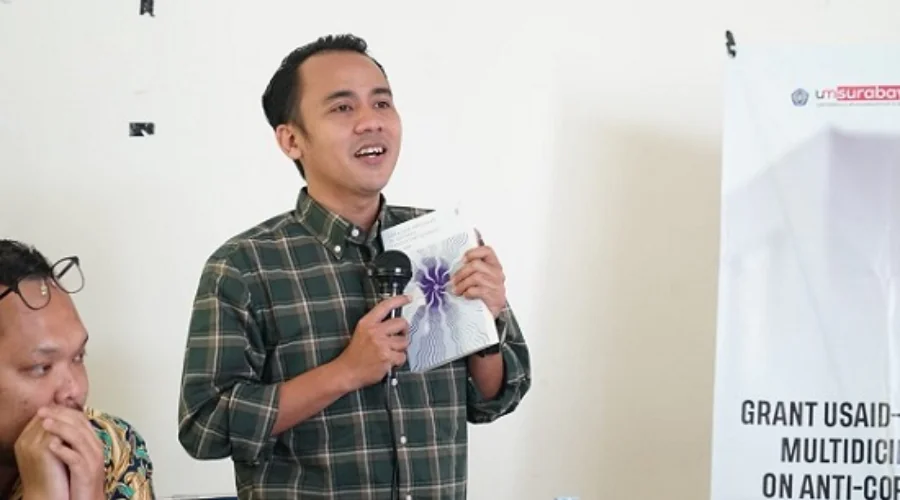
- 05 Aug
- 2023
Foto Dosen UM Surabaya Radius Setiyawan (Humas)
The Rise of AI Phenomena in Learning, UM Surabaya Lecturer Reveals About Shock Future
The existence of Artificial Intelligence (AI) or artificial intelligence has a number of benefits to help human work, even in the world of education continues to experience rapid development. Various types of AI tools can be accessed either free or paid.
However, AI still has advantages and disadvantages. On the one hand it has many benefits, but on the other hand AI can also pose a threat to the world of education.
This was conveyed by Radius Setiyawan, a lecturer in Visual Communication Design (DKV) UM Surabaya. Radius said that there are 3 things that must be the focus of universities amid today's AI sophistication.
First, there is the potential for new plagiarism practices to emerge. He said chat using the AI platform or GPT (Generative Pre Trained Transformer) chat would clearly reduce the role of education substantially.
"Of course, if this is not a concern for lecturers and institutions, the presence of AI will reduce the role of education in promoting hard work and a critical attitude. Efforts to build an intellectual ethos will obviously be disrupted. As a result, students no longer try and tend to be lazy to conduct written studies using the correct scientific method," said Radius Saturday (5/8/23)
The second impact is Shock Future. The presence of AI in the world of education also results in future shocks or stuttering in dealing with new phenomena today and in the future.
"This condition will certainly trigger concern, however, technological developments that are developing rapidly cannot be prevented, so lecturers in tertiary institutions must really understand technological developments and student behavior as digital natives," he said.
Radius, a lecturer in the media and cultural studies course, said that by understanding digital native patterns, lecturers will be able to see new opportunities and create innovative solutions that change the way they interact, work and carry out activities in the world of education.
Three adaptations. This means that an institution or institution must be able to adapt in seeing learning innovations. He said the adaptation of educational institutions to these changes was very important to maximize learning.
According to him, the spirit of the institution to continue to adapt must be the focus. The culture within the institution needs to be built so that the use of technology, especially AI, can be utilized correctly and appropriately.
"In the midst of today's AI sophistication. Universities need to create and adapt related curricula that are able to respond to technological developments by reinventing them in terms of methods and teaching, of course with the support of all education stakeholders. Lecturers and students must have adequate training and access to properly utilize AI technology without reducing the function of education," concluded Radius.










(0) Comments